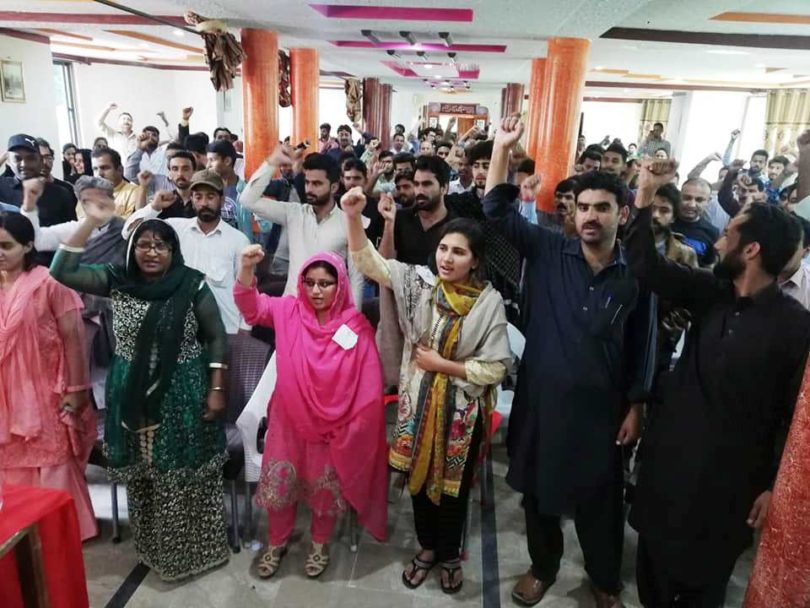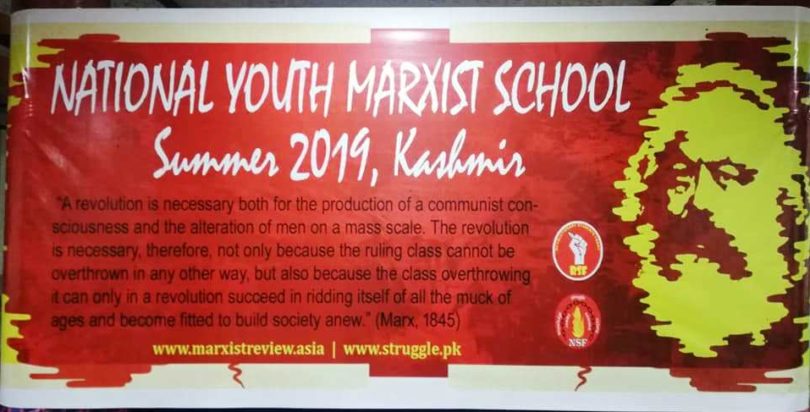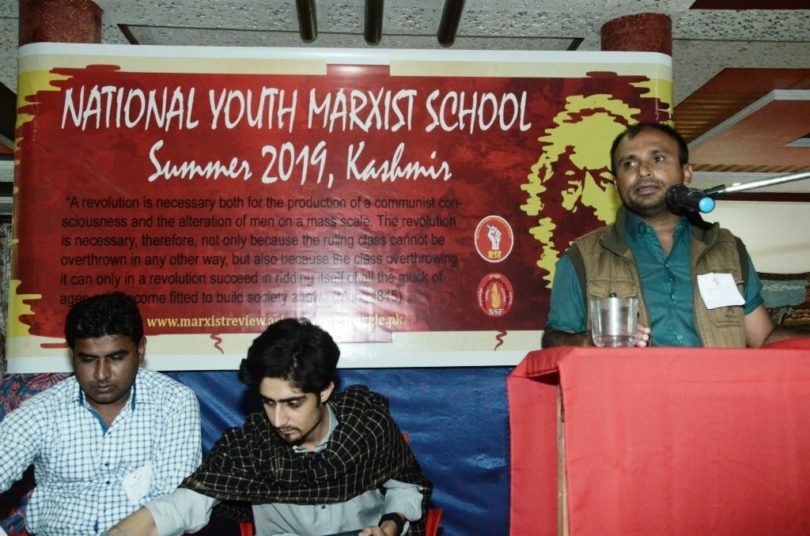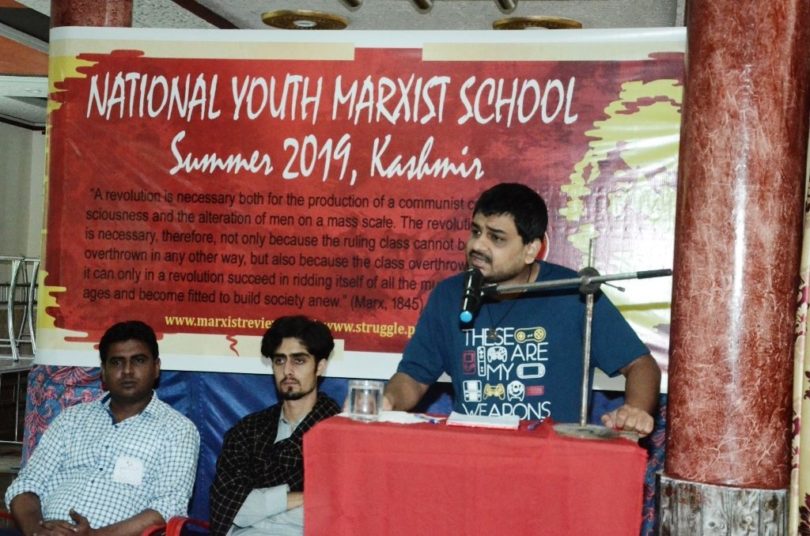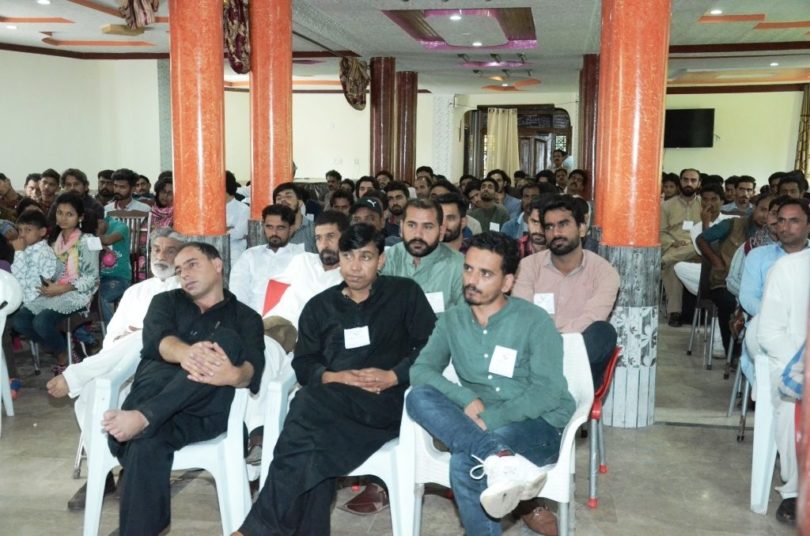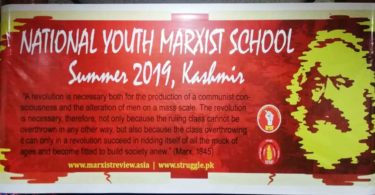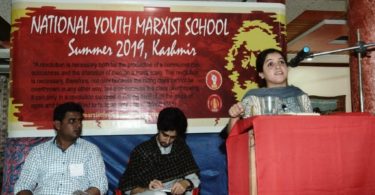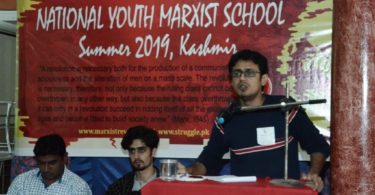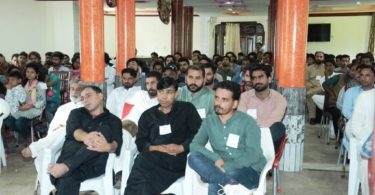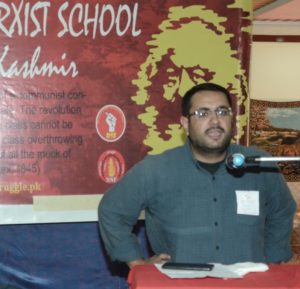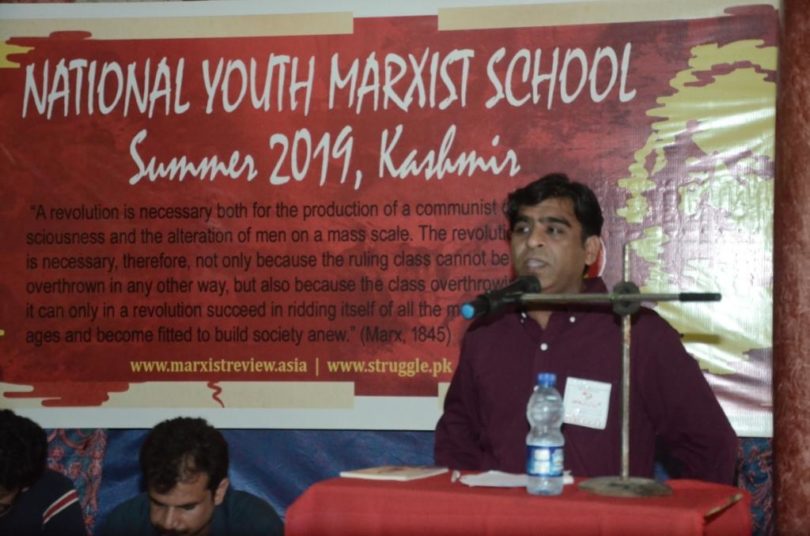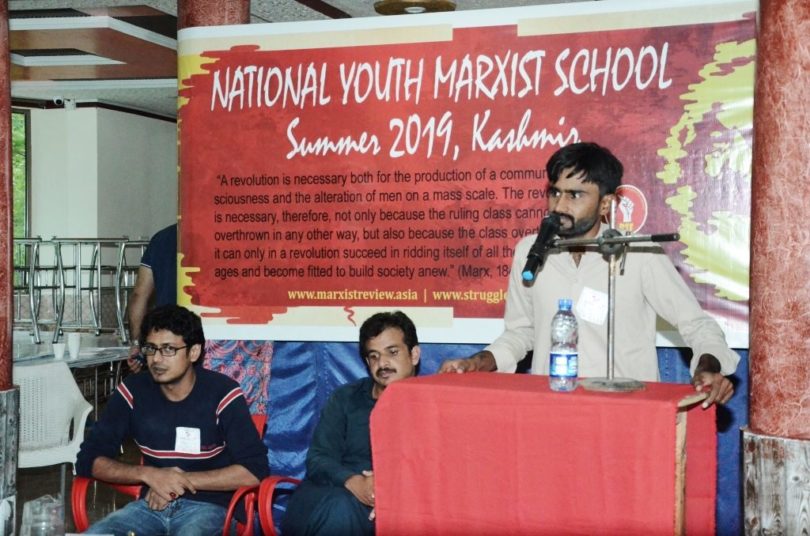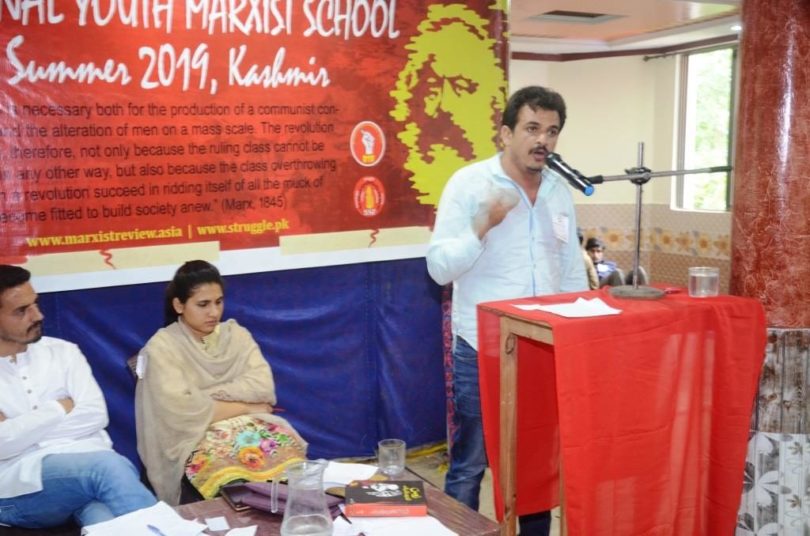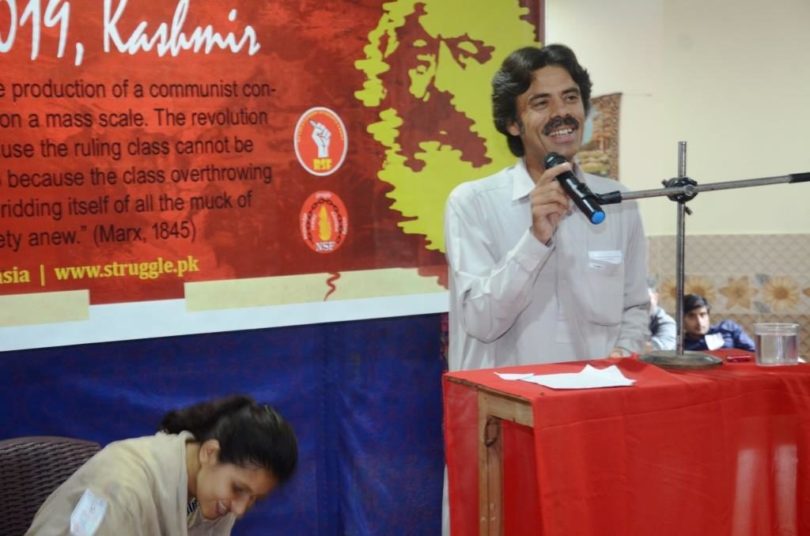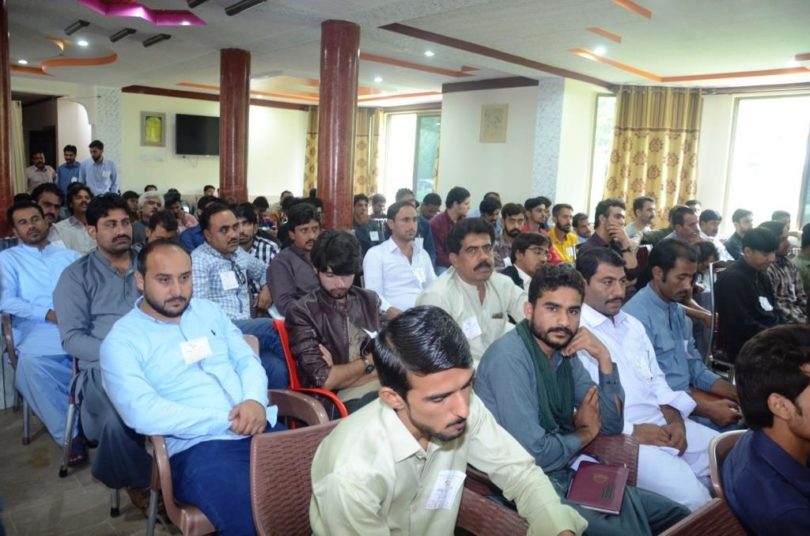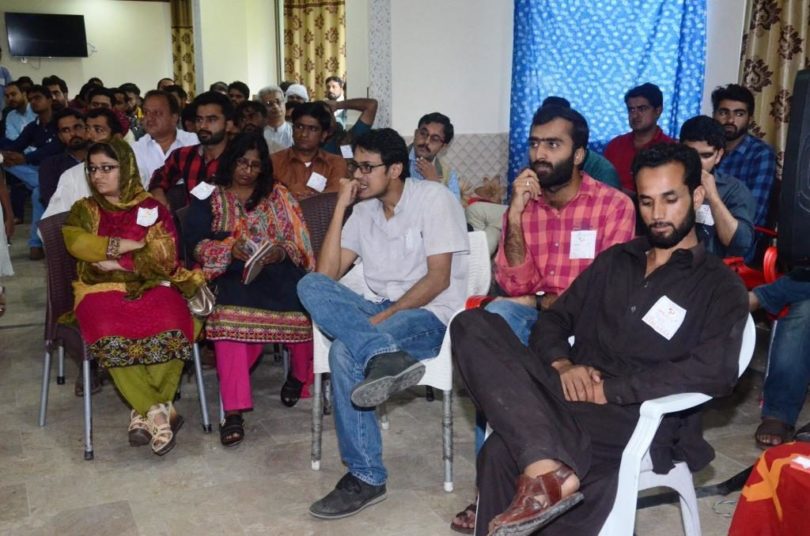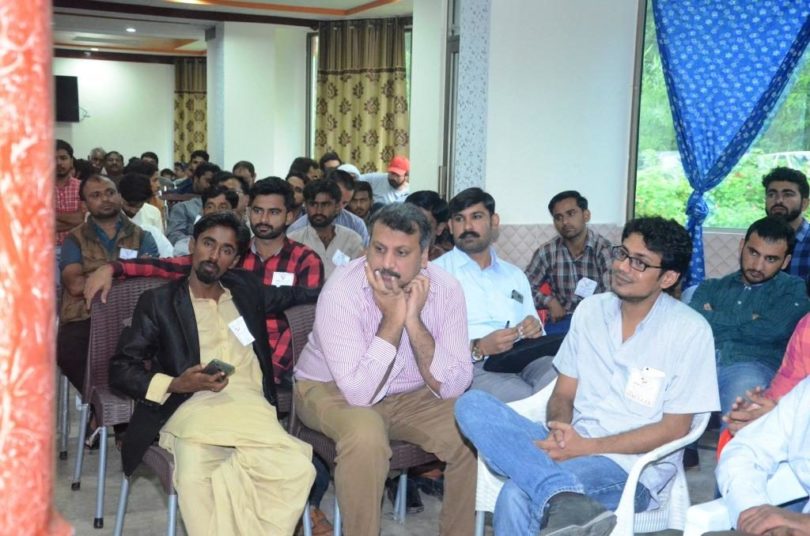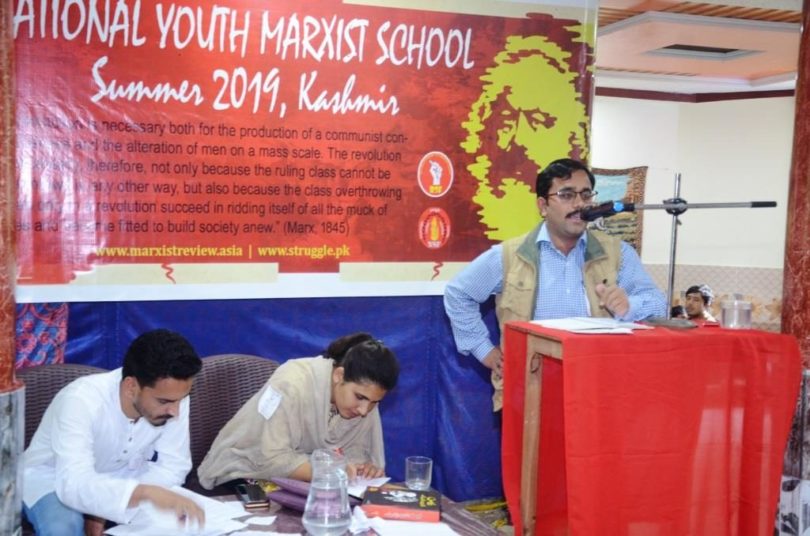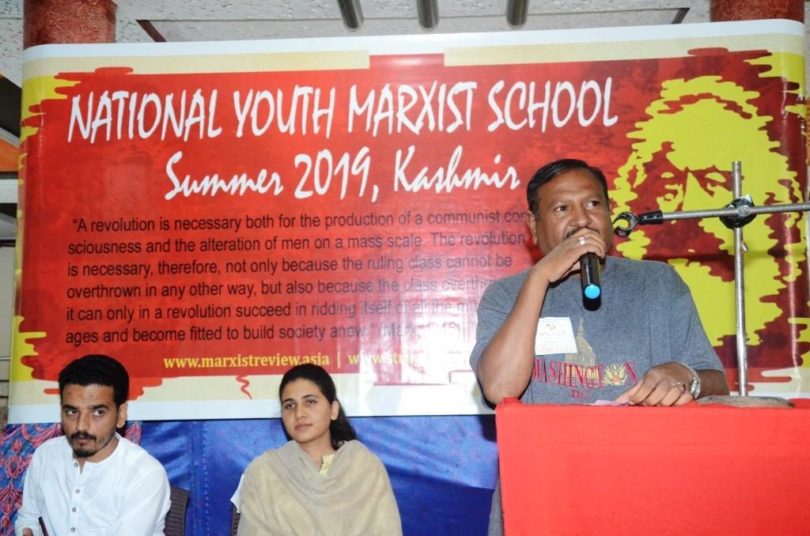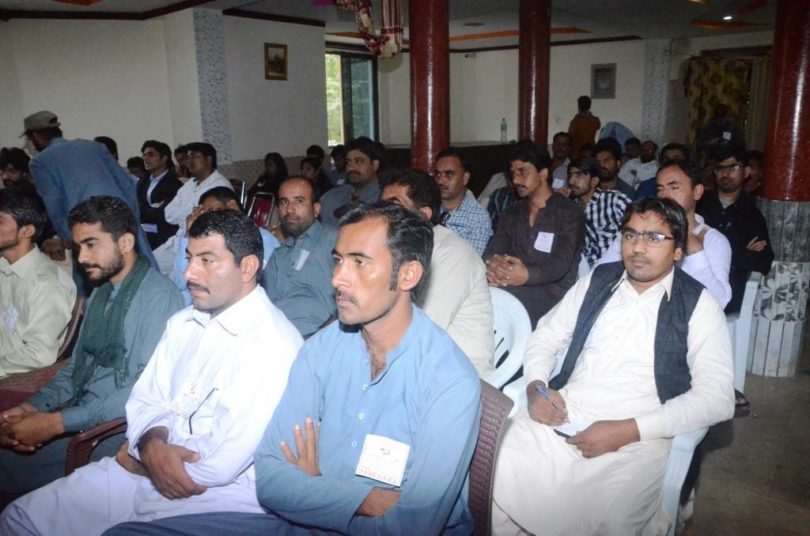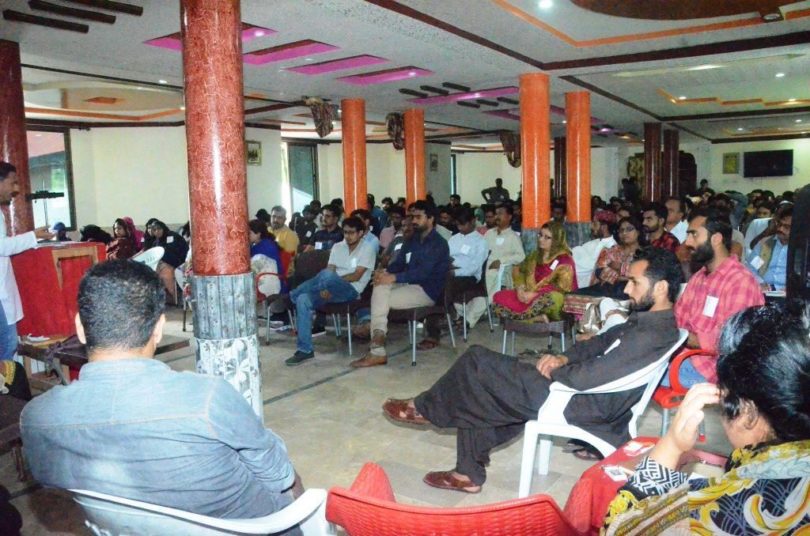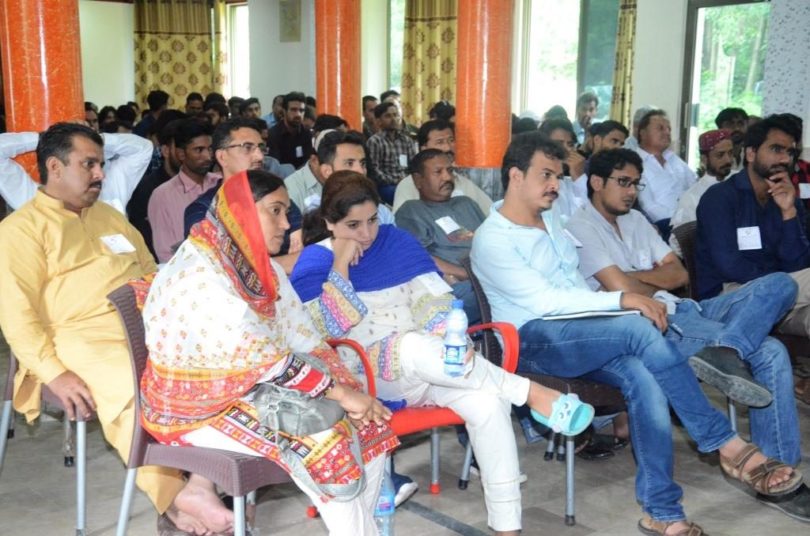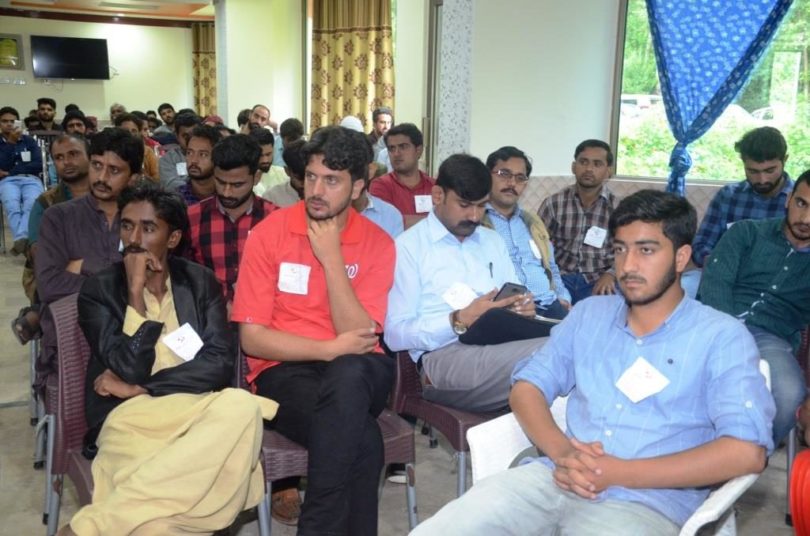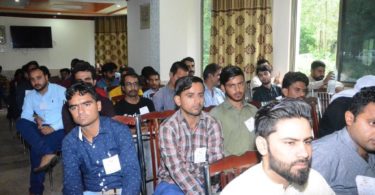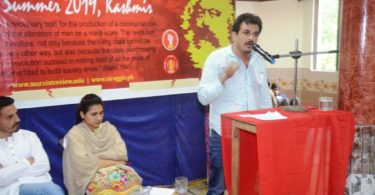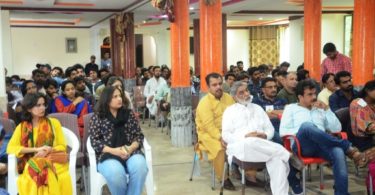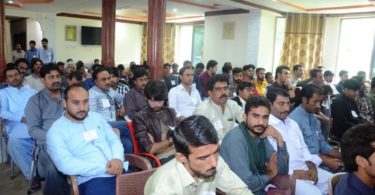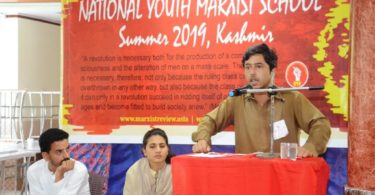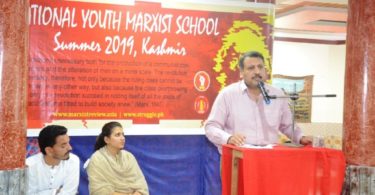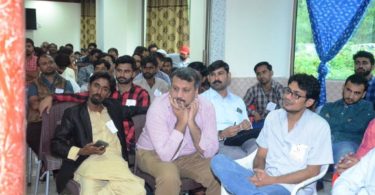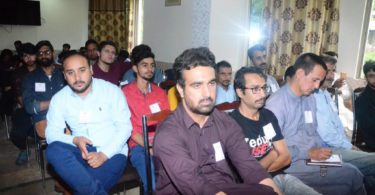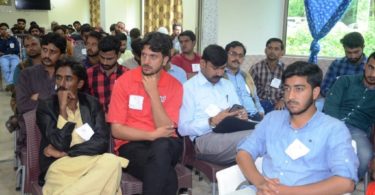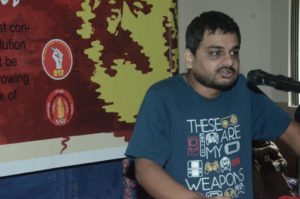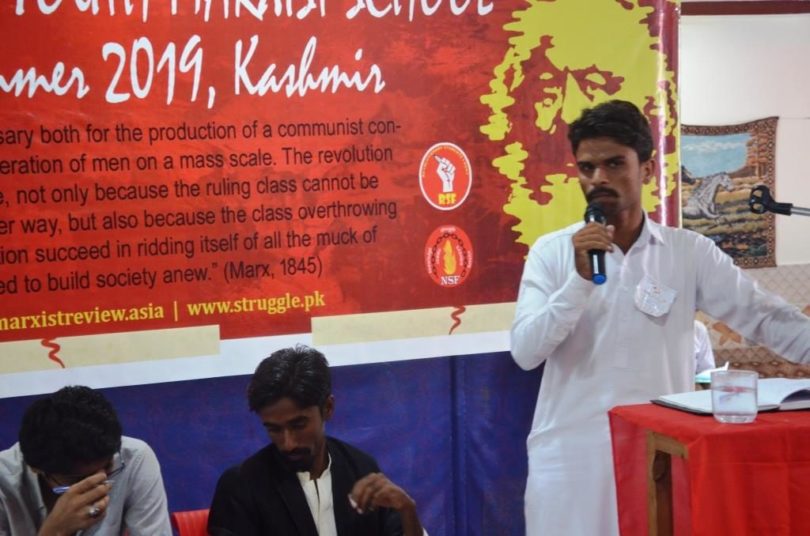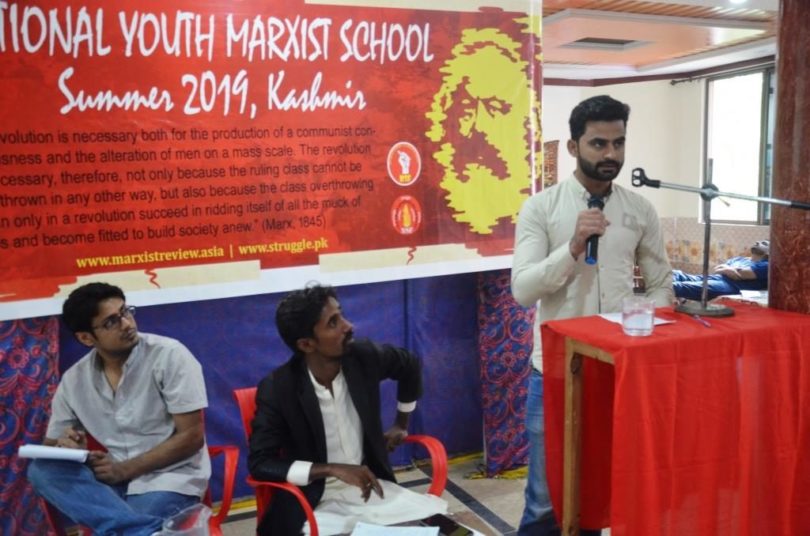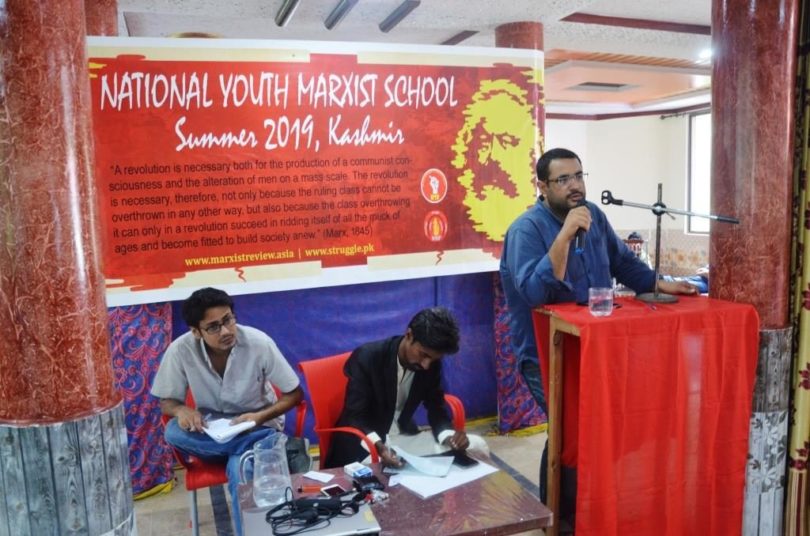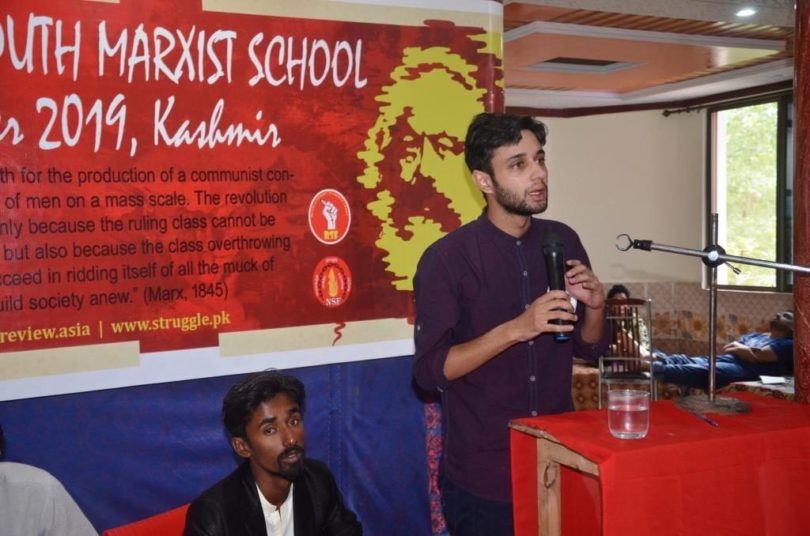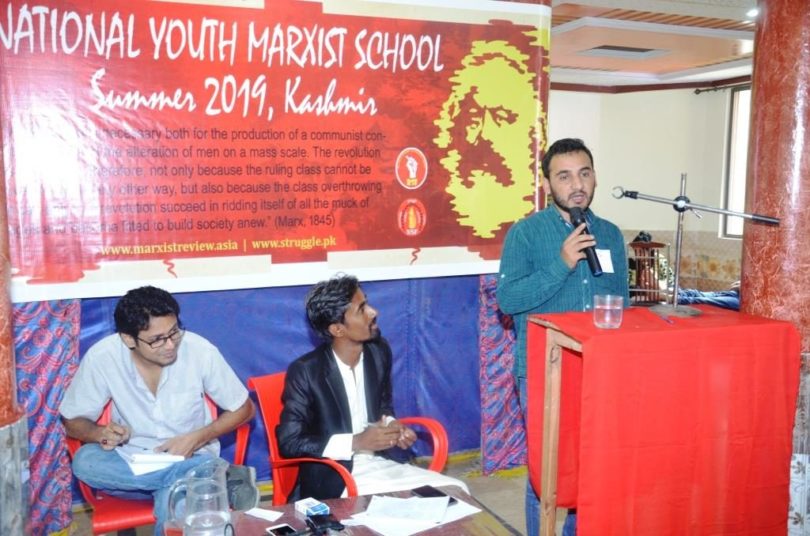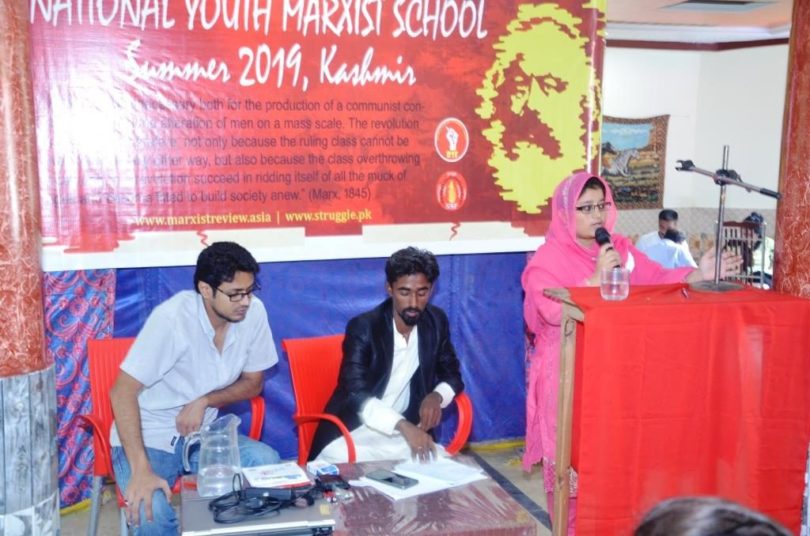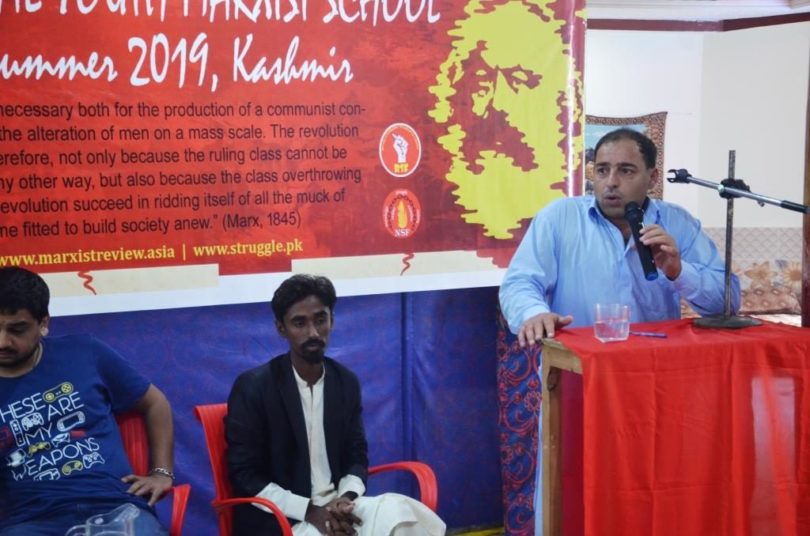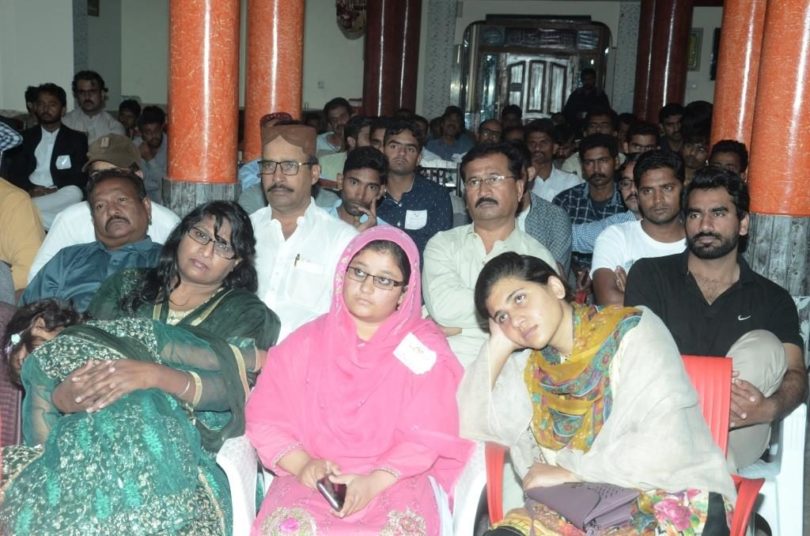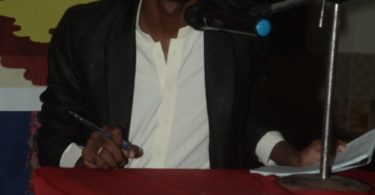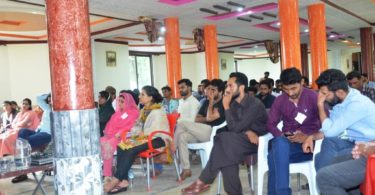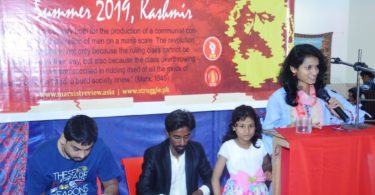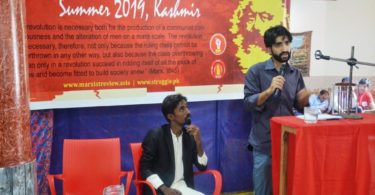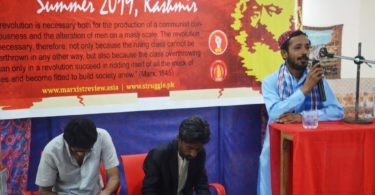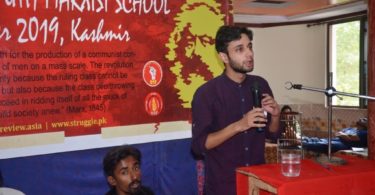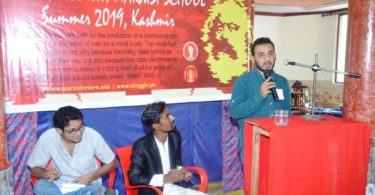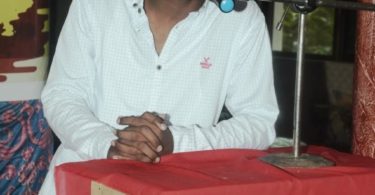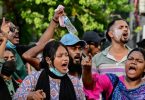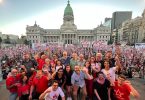By Revolutionary Students Front
Photography Sharjeel Mosa & Khalid
A Three Day Marxist Summer School was organized by the Revolutionary Students Front (RSF) and Jammu Kashmir National Students Federation (JKNSF) on 26th, 27th and 28th of July, in Pakistani administered Kashmir at the scenic destination near Rawalakot. The School was attended by more than 350 youth, including over 50 females, from all over the country.
The School, which consisted of five sessions, formally commenced on 26th July, with a warm welcome from the hosting region’s Rashid Sheikh, former chairmen of JKNSF.
First Session
Basit Baaghi chaired the first session, “Wither World?” and Hanif Misrani led the discussion by shedding light on the current crisis of global capitalism from different angles. Misrani elaborated the current Chinese-American conflict, the critical situation of American capitalism under the Trump administration and his imperialist agendas, the growing contraction in European Union, Yellow Vest Movement, Brexit Crisis and elections for a new Prime Minister in Britain, the rise and fall of revolutionary movements in Sudan and Algeria, the background of Narendra Modi’s win in Indian election and its probable consequences, the causes behind the religious extremism, racism and fascist tendencies around the world, climatic changes, global warming, and the perspective for the character of revolutionary movements in times to come. The points raised in the discussion were further elaborated and discussed by Mohiba Ahmad, Imran Kamyana, Umer Rasheed, Altamash Tasadduq, Rehana Akhtar, and Awais Qarni. In the end, Hanif Misrani summed up the session by answering the questions from the audience.
Second Session
After the lunch break, the second session on “The crisis of Pakistani Capitalism” was chaired by Umer Rasheed while Ammar Yasir led the discussion by analysing the historical crisis of capitalism in Pakistan and its reasons. He elaborated why the ruling class of Pakistan has failed to establish a modern capitalist state over here. He explained the material reasons for the technological, economic, cultural and social backwardness, as well the destructive results of imperialist interventions in Pakistan. He discussed the historical decay of capitalism in Pakistan and the ruling elite. He shed light on the recent Pashtoon movement (PTM) and its impact on the general consciousness of the mass. Furthermore, he went on to discuss the contradictions between the factions of the ruling class and the state, the social basis and class character of PTI, PML-N, PPP and other political parties of the elite, the effects of the IMF program on the people and national economy, proletarian movement and student politics. He also discussed the perspective of movement, the probable directions the present situation could take. After the leadoff, Masood Afzal, Zafar Ullah, Babar Patras, Abdul Rehman, Fayaz Chandio, Murawat Rathore, Sangeen Bacha, and Imran Kamyana contributed to the different points discussed in the session. The session was summed by Awais Qarni as he answered the questions from the audience.
Third Session
The third session,“Forms and Role of the Modern State”, started on 27th July, on the second day. The session was chaired by Khkula Bacha. While doing justice to the length and detail of the topic, Asif Rasheed from Rawalpindi analysed the different forms and characters of the state under different circumstances since the rise of Capitalism as a Socio-Economic system. He also discussed the rise of the state concerning the classes, bourgeois revolutions and the capitalist democracy in the modern age, Bonapartism, different forms of dictatorships and fascism, states of the former colonies and imperialism as well as Proletariat Bonapartism, the difference between a Worker’s state and a degenerated Worker’s state. After the leadoff Walhaar Khan, Altamash Tasadduq, Umer Rasheed, Imran Kasi, Hatim Khan, Haris Qadeer and Zafar Ullah contributed to the discussion by shedding light on the dialectics and contradictions of the capitalist state in the past and at present. Asif Rasheed summed up the session by answering the questions.
Fourth Session
The fourth session, “Mankind under Socialism”, started after a short lunch break and it was chaired by Sajid. Imran Kamyana led the discussion by elaborating the socioeconomic, political, technological, and cultural aspects of the socialist reconstruction of society. He also discussed the initial and developed stages of socialism, the concept of “Socialism in one country” and the degenerated Worker’s state, the method of socialist planning, the re-building of man’s personality under Socialism, and last but not the least the inevitability and need of the socialist revolution. The session continued by the contributions of Bushra Aziz, Khalil Babar, Umer Abdullah, Ismat Parveen, Altaf, Fozia, Haji Shah and Fayaz Chandio. Imran Kamyana summed up the session by answering the questions.
Fifth Session
The fifth and last session, “The Strategy and Tactics for Youth Work”, started on 28th July with Manish Dharani as the chairperson. Awais Qarni gave a detailed lead off discussing the present scenario of student politics, the need for a revolutionary party, the role of youth and youngsters in the building of a revolutionary party, the need, importance and strategies for working with Youth. After leadoff, reports were presented and targets for the future were taken. Muqaddas, Neha, Basharat Ali, Hatim Khan and Raza Khan presented their ideas in the open discussion. Wajid Khan presented the finance report of the school. Imran Kamyana made a few concluding remarks in which he emphasised the importance of the building of a revolutionary party with strong roots in the working class. The school formally concluded with the signing of “The Internationale”, the global workers’ anthem and subsequent revolutionary slogans.
The school proved to be one of the most successful ones from all aspects-qualitative, quantitative and financial. The interest of the audience in the discussions was evident from the enormous number of questions asked during the sessions. Revolutionary poetry and anthems kept the morales and enthusiasm high during all the sessions. Music, dance, poetry and discussions continued till late at night.
